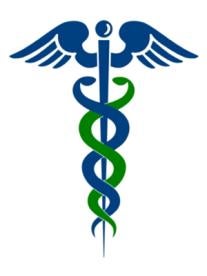Summary
After an already active first half of 2018 for 340B Program developments, 340B Program stakeholders are not getting a summer respite. In just the past week, the US Government Accounting Office (GAO) released its much-anticipated report on 340B contract pharmacy arrangements, the Health Resources and Services Administration (HRSA) released two new policy updates, two new 340B-related bills have been introduced in the US House of Representatives, and the House Committee on Energy and Commerce Subcommittee on Health announced that it would be holding a hearing on July 11 to discuss seven previously introduced House bills covering 340B issues and discussion drafts of an additional eight 340B bills.
In Depth
Many 340B Program stakeholders had expected 2018 to be the year that significant changes were made to the 340B Program. While the likelihood for significant change during 2018 has decreased, developments in the last week of June and first week of July suggest that 2018 may be laying the groundwork for changes that could fundamentally alter the 340B Program in 2019.
Meanwhile, 340B covered entities should ensure that they do not lose track of the “now” in the midst of the potential for future program changes and should remain actively engaged in continued monitoring and oversight of compliance with current 340B Program requirements and guidance. Despite the uncertain future of the 340B Program, HRSA appears to be ramping up its oversight of covered entity compliance and covered entities that become complacent about on-going compliance monitoring could become subject to unwanted (and unexpected) scrutiny.
GAO Report on Federal Oversight of 340B Contract Pharmacy Arrangements
On June 21, 2018, the GAO released its long-awaited report on 340B contract pharmacy arrangements. The GAO reviewed: the extent of 340B covered entities’ arrangements with contract pharmacies; the financial arrangements between covered entities, contract pharmacies and contract pharmacy vendors; the provision of discounts on 340B drugs dispensed through contract pharmacy arrangements; and, HRSA’s oversight of 340B contract pharmacy compliance. The GAO found that contract pharmacy arrangements offer opportunities for 340B covered entities to increase 340B revenue and create challenges for compliance with 340B Program requirements. Further, the GAO found that HRSA’s current oversight of 340B contract pharmacy arrangements does not allow HRSA to adequately ensure contract pharmacy compliance with 340B Program requirements. The GAO was particularly critical of HRSA’s contract pharmacy guidance to covered entities, which the GAO criticized for lack of specificity, and the infrequency of HRSA review of contract pharmacy compliance.
A summary of the GAO recommendations and HRSA responses is provided below. HRSA’s responses appear to reflect frustrations with its lack of regulatory authority and challenges of working with CMS to address Medicaid managed care duplicate discount prevention. The HRSA responses indicate that in the short term, HRSA’s only policy or process change in response to the GAO recommendations will be a change in the HRSA audit selection criteria to better target audits to covered entities with large numbers of child sites utilizing contract pharmacy arrangements. Therefore, covered entities with large numbers of child sites and contract pharmacy arrangements should expect stepped up HRSA audit activity and, notwithstanding HRSA’s disagreement with GAO’s recommendations to require additional documentation of post-audit corrective actions, all covered entities should anticipate increased corrective action plan documentation review and oversight in all areas of compliance (not just contract pharmacy) following a HRSA audit.
|
GAO Recommendation |
HRSA Response |
|
Require covered entities to register contract pharmacies for each child site within the scope of the contract |
HRSA will assume that contract pharmacy arrangements apply to all registered locations of a covered entity |
|
Issue guidance on prevention of duplicate discounts under Medicaid managed care |
HRSA and CMS must work together to develop guidance and that work is on-going |
|
Incorporate review of duplicate discounts under Medicaid managed care into HRSA audits |
HRSA cannot review compliance until guidance has been issued |
|
Issue guidance on post-audit corrective action look-back period |
HRSA is working to determine next steps, but is challenged by the issuing of guidance versus regulations |
|
Require that corrective action plans include a description of covered entity’s methodology for identifying the full scope of non-compliance and HRSA review of such methodology |
HRSA does not concur with this recommendation and believes it will create significant burden for covered entities |
|
Require evidence of successful implementation of corrective action prior to closing audit |
HRSA does not concur with this recommendation and believes it will create significant burden for covered entities and extend the time period to close audits |
|
Provide more specific guidance on covered entity oversight of contract pharmacy arrangements, including scope and frequency |
HRSA is working to determine next steps, but is challenged by the issuing of guidance versus regulations |
June and July 340B Program Policy Updates
After a several month hiatus, HRSA re-initiated its release of monthly 340B Program policy updates in May 2018. The June and July updates were released in close proximity to one another and both address compliance requirements for contract pharmacy arrangements. These updates are summarized below. In light of the June update, covered entities should review their contract pharmacy arrangements for provisions that involve repayments to manufacturers by the contract pharmacy or any third party administrator (TPA), ensure that they understand the repayment mechanism and the risks associated with the arrangement and, if necessary, contact the contract pharmacy or TPA to renegotiate the agreement to mitigate risks of non-compliance.
The June update focuses exclusively on resolving contract pharmacy-related non-compliance. The June update reminds covered entities that responsibility for 340B Program compliance remains with the covered entity and that the covered entity is responsible for addressing instances of diversion and duplicate discounts. Notably, the June update explicitly references a particular corrective action practice that HRSA believes is undertaken by some contract pharmacies and TPA whereby the contract pharmacy or TPA makes repayments to manufacturers to correct non-compliance – at times without the prior knowledge or “engagement” of the covered entity. HRSA states in the June update that such repayments do not comply with 340B Program requirements.
The July update focuses more on 340B Program integrity efforts undertaken at the time of registration of a hospital or child site. HRSA advises that random lists are generated during the registration process to identify entities for additional review. As part of these reviews, HRSA may request documentation to support a hospital’s 340B eligibility or the written and signed contract between a covered entity and a contract pharmacy.
New and Draft 340B Legislation
Continuing its on-going 340B oversight activities and progress toward expected legislative action, the House Committee on Energy and Commerce Subcommittee on Health announced that it will hold its next 340B hearing on July 11, 2018. During the hearing, the Subcommittee will discuss 15 separate bills related to the 340B Program, including seven previously-introduced bills and eight new and not yet introduced discussion drafts (some without current sponsors).
Many of the bills, particularly the discussion drafts, cover discrete issues that had not previously been identified as likely candidates for 340B-related legislation (e.g., adding services for victims of sexual assaults as a 340B Program eligibility requirement for certain hospitals or creating a new position for a Presidentially-appointed, Senate confirmed 340B Program Administrator), while others have been previously identified as likely subjects of 340B legislation and will generate significant debate from all corners of the 340B stakeholder community (e.g., significantly narrowing the definition of patients eligible to receive 340B drugs from certain hospitals).
A chart identifying and summarizing the bills to be discussed during the July 11 hearing is below.
|
Bill Number |
Brief Summary |
|
H.R. 2889 |
Expand scope of orphan drug purchasing at 340B prices for rural and cancer hospitals participating in the 340B Program |
|
H.R. 4392 |
Prevent CMS from implementing, administering or enforcing the payment cut to 340B drugs under the Medicare Outpatient Prospective Payment System |
|
H.R. 4710 |
Additional summary and analysis here |
|
H.R. 5598 |
Establish reporting requirements related to low-income utilization of outpatient hospital services. |
|
H.R. 6071 |
|
|
H.R. 6240 |
Impose user fee of 0.1 percent of 340B purchases on hospital covered entities, which would be used to enhance program integrity and oversight activities and promote access to pharmacy services at hospital covered entities |
|
H.R. 6273 |
Require that DSH covered entities with an emergency room employ or contract with sexual assault forensic examiners for 24/7 availability |
|
H.R. [TBD] |
Increase DSH percentage threshold for 340B eligibility for DSH hospitals to 18 percent and increase the 340B discount amount for children’s hospitals, cancer hospitals and critical access hospitals |
|
H.R. [TBD] |
Create a new presidentially-appointed and Senate confirmed position of Administrator for the 340B Drug Discount Program and transfer authority for the 340B Program oversight from the HRSA Administrator to the new 340B Administrator |
|
H.R. [TBD] |
Define “patient” for DSH, children’s and cancer hospitals to limit eligibility to individuals who:
|
|
H.R. [TBD] |
Require the US Department of Health and Human Services (HHS) to implement all recommendations to HRSA made in the June 2018 GAO report on contract pharmacy oversight |
|
H.R. [TBD] |
Require hospital covered entities to submit annual data on aggregate 340B savings, aggregate 340B revenue, payor mix and uncompensated care costs |
|
H.R. [TBD] |
Require HRSA to conduct covered entity and manufacturer audits in accordance with the most recent generally accepted government auditing standards issued by the Comptroller General of the United States |
|
H.R. [TBD] |
Require DSH, children’s and cancer hospitals to charge low income patients no more than the 340B ceiling price for 340B drugs |
|
H.R. [TBD] |
Provide HHS with authority to promulgate regulations necessary to carry out the 340B Program |





 i
i

